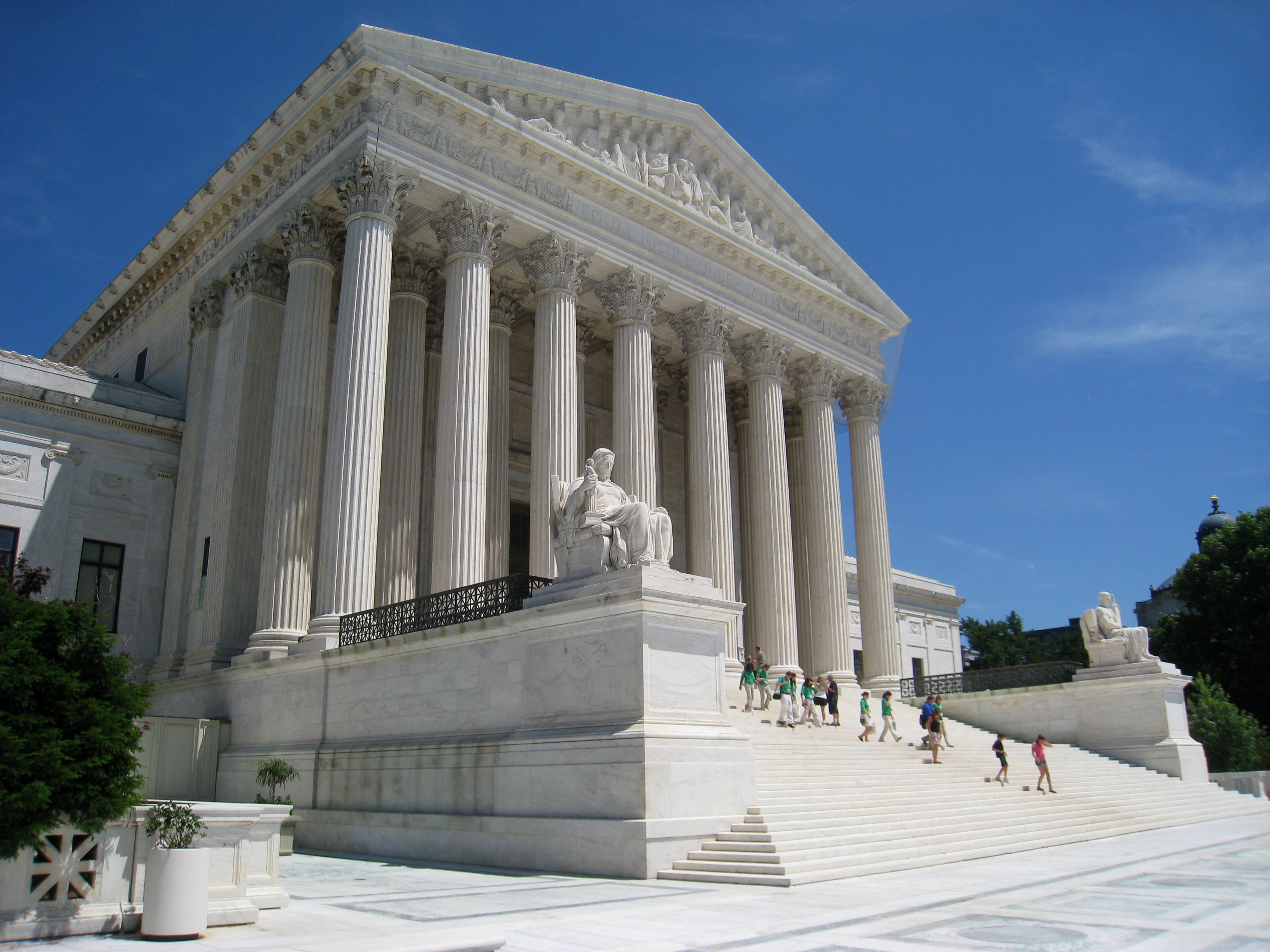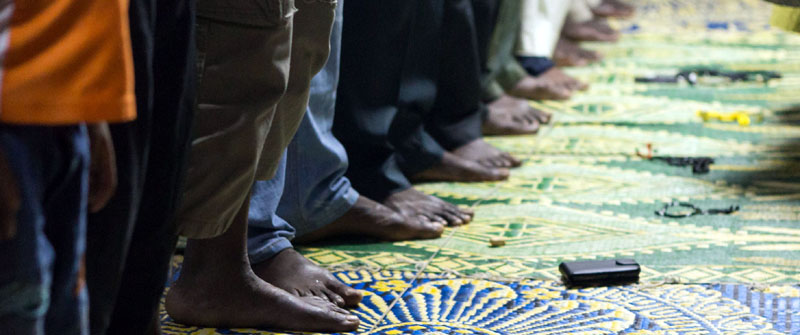
WASHINGTON (BP) — A series of rapid-fire, hypothetical questions from across the U.S. Supreme Court’s philosophical divide has provided encouragement to advocates of increased freedom for churches to participate in government programs that have a secular purpose.
Both liberal and conservative justices offered alternative scenarios to a lawyer for Missouri in an important church-state case during oral arguments Wednesday (April 19). The justices — at least some who seemed skeptical of the state’s position — proposed the examples as they considered whether the state’s exclusion of a church-operated daycare center from a playground resurfacing program constitutes religious discrimination.
The Supreme Court is expected to issue a ruling before its term closes in late June or early July.
The legal conflict involves the Missouri Scrap Tire Grant Program, which provides grants to nonprofit organizations — minus church-affiliated ones — for safer, rubberized surfaces for children’s playgrounds. The state rejected the application of the Trinity Lutheran Church Learning Center in Columbia, Mo., from participation in the program because of its affiliation with the church.
The exclusion was based on a section in the state’s constitution that “no money shall ever be taken from the public treasury, directly or indirectly, in aid of any church, sect or denomination of religion.” Missouri is one of nearly 40 states that have such provisions, which are known as Blaine amendments.
Southern Baptist father-and-son law team Michael and Jonathan Whitehead — co-counsels for the church — were encouraged after the arguments.
“[O]ver half of the justices seemed more receptive to the church’s arguments,” Jonathan Whitehead said in a written release. “Our legal team could not be more pleased or more optimistic for a victory.”
Michael Whitehead said, “You can never absolutely predict the vote just based on the justices’ questions and comments, but many observers are saying a 7-2 for the church is not unlikely.”
Russell Moore, president of the Southern Baptist Ethics & Religious Liberty Commission (ERLC), told Baptist Press in written comments, “Local churches shouldn’t be penalized by the state merely for being churches.”
Moore expressed gratitude for “the legal representation Southern Baptists Mike and Jonathan Whitehead have provided on behalf of Trinity Lutheran for the sake of religious liberty.”
“My hope is that the court will do the right thing and resolve these important constitutional matters, protecting religious liberty and empowering churches and religious organizations to serve their communities,” Moore said.
The series of hypotheticals — offered by Associate Justices Stephen Breyer and Elena Kagan of the court’s liberal wing and Chief Justice John Roberts and Associate Justice Samuel Alito of the conservative wing — came during the defense of Missouri’s policy by James Layton, the former solicitor general of the state. Among the questions:
— What about police and fire protection for churches? The state is not giving money to the church in that case and the protection is a public service, Layton told Kagan. He told Breyer, “I am not going to take the position that it permits” a city or state to withhold such protection, including public health, from churches.
Breyer asked, “If [the constitution] does not permit a law that [denies] money out of the treasury for the health of the children in the church, school or even going to church, how does it permit Missouri to deny money to the same place for helping children not fall in the playground, cut their knees, get tetanus, break a leg, et cetera? What’s the difference?”
Layton replied, “The difference is that the establishment [of religion] concerns that motivate Missouri’s policy do not apply in the police and fire context, but they apply here.”
The benefits in Breyer’s examples “are not selective, which they are [in the Trinity Lutheran case]; they are universal,” Layton said.
— What about federal grants to increase security for high-risk terrorist targets, such as synagogues and mosques? No, the Missouri constitution would not allow such grants, Layton told Alito.
— What about tours of the state capitol for school groups with the exception of religious schools? He doubted such exclusion would be permitted under the constitution since everyone who goes to the capitol receives a tour, Layton told Roberts.
During the exchanges, Kagan told Layton, “There’s a constitutional principle. It’s as strong as any constitutional principle that there is, that when we have a program of funding — and here we’re funding playground surfaces — that everybody is entitled … to that particular funding, whether or not they exercise a constitutional right; in other words, here, whether or not they are a religious institution doing religious things.
“As long as you’re using the money for playground services, you’re not disentitled from that program because you’re a religious institution doing religious things.”
The “biggest surprise” of the arguments, Jonathan Whitehead said, was Kagan and Breyer’s “very open struggles about rules that would allow churches to be excluded from public safety programs just because they are churches. While everyone agreed the state shouldn’t let a church burn down to avoid ‘aid’ to houses of worship, none of the state’s explanations seemed to persuade the court that this case was much different.”
Holly Hollman, general counsel of the Baptist Joint Committee for Religious Liberty (BJC), acknowledged afterward the court “was struggling to find the right line here, but the line is the one that Missouri has drawn to separate the institutions of religion and government and prevent churches from being funded by the state, because churches are fundamentally involved in a religious exercise that should be protected.”
The BJC supported Missouri in a friend-of-the-court brief as did Americans United for Separation of Church and State, National Education Association and Lambda Legal Defense and Education Fund among others.
The ERLC filed a brief in support of Trinity Lutheran. Other organizations backing the church in briefs included the American Center for Law and Justice, Becket, Christian Legal Society, National Association of Evangelicals, Union of Orthodox Jewish Congregations of America and 19 states.
David Cortman — senior counsel for Alliance Defending Freedom who argued on behalf of the church — told the justices the Missouri policy violates the First Amendment’s free exercise of religion clause.
The church was not seeking preferable treatment, Cortman told reporters afterward. “It was seeking equal treatment here…. Your status should be completely irrelevant when you approach the government for a neutral benefit. The government should be religion blind just like it’s race blind.
“When the government’s engaging in safety benefit programs, it should want all kids to be safe,” Cortman said. “It shouldn’t matter what their status is. It shouldn’t matter where they decide to attend school. And I think that’s the principle here that the state violated.”
Hollman told reporters, “This case is not about playground safety. This case is about a Missouri constitutional prohibition that prohibits aid directly to churches, not to religious individuals but to churches.”
The Supreme Court “has never upheld direct government grants to churches, much less required states to provide such funding,” she said. “And that’s what this case is about — whether or not a state has to pay for property improvements of a church despite 200 years of precedent and lots of practical considerations that argue otherwise.”
Missouri’s new governor, Eric Greitens, threw a wrinkle into the case April 13 when he instructed the Department of Natural Resources, which manages the tire grant program, to make religious organizations eligible to receive grants. Though the question of mootness was raised during oral arguments, there did not appear to be strong sentiment for refusing to rule on the merits of the case in the wake of Greitens’ action.
Both Whiteheads are members of Abundant Life Baptist Church in Lee’s Summit, Mo.
The case is Trinity Lutheran Church v. Comer.



















